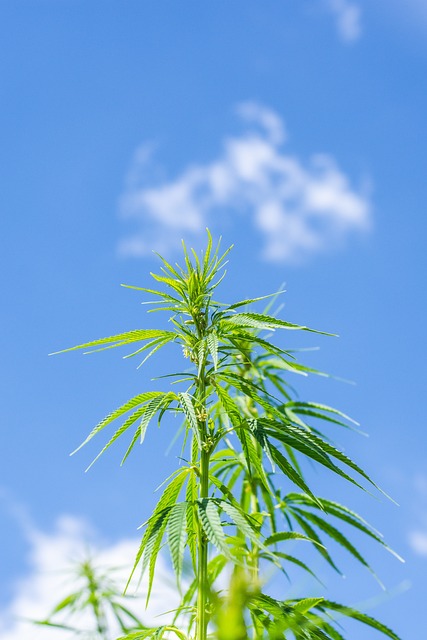The THCA flower, rich in the non-psychoactive cannabinoid THCA and complementary compounds like CBD, is gaining scientific and consumer attention for its potential health benefits. Unlike THC, THCA doesn't induce psychoactive effects, making it a preferred option for therapeutic use. The unique properties of THCA, either in its natural state or as an extract, have been linked to various therapeutic applications and are thought to be particularly effective when combined with CBD due to the 'entourage effect.' This synergy is believed to amplify their individual effects, offering a potent treatment option for conditions like pain, inflammation, anxiety, and seizures. The THCA flower's role in leveraging this effect positions it as a significant focus of research and a sought-after product in the wellness industry. Users should consider personal endocannabinoid system dynamics and seek professional guidance when incorporating THCA flower into their wellness regimen, mindful of potential side effects like dry mouth/eyes and maintaining caution with dosage to avoid adverse reactions post-decarboxylation. It's crucial to consult healthcare professionals before use and ensure product quality from reliable sources for safe and effective use of the THCA flower's CBD synergy.
Exploring the multifaceted nature of cannabinoids, this article delves into the properties and potential of THCA (tetrahydrocannabinolic acid) flower, a non-psychoactive precursor to THC found in hemp and marijuana. As we unravel its role within the cannabis plant, we’ll examine the science backing its purported health benefits and how it interacts with CBD to create a synergistic effect. However, with any substance comes the need for awareness of potential side effects, which we will address in-depth. Users are encouraged to approach THCA flower with informed dosage guidelines to ensure safety and efficacy. Additionally, the legal status of THCA flower varies by region, necessitating a clear understanding of local laws. This article also investigates how THCA flower complements medical treatment plans, compares its effects to other cannabinoids, offers best practices for preserving its potency, and looks ahead to future research and development in this exciting field.
- Understanding THCA Flower and Its Role in Cannabis
- The Science Behind THCA Flower and Its Potential Benefits
- Exploring the Synergy Between THCA Flower and CBD
- THCA Flower Side Effects: What Users Should Know
- Dosage Matters: How to Safely Consume THCA Flower
Understanding THCA Flower and Its Role in Cannabis
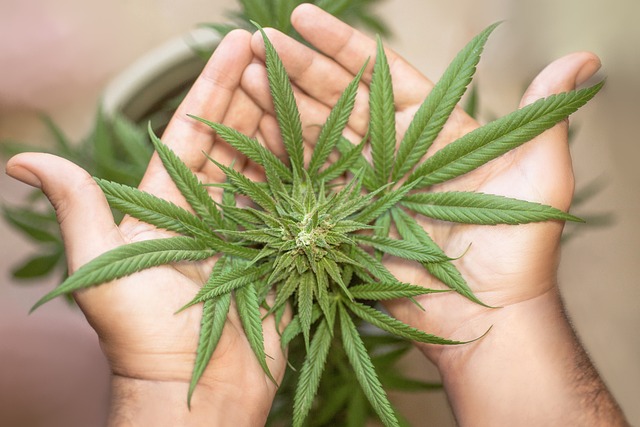
Delta-9-tetrahydrocannabinolic acid (THCA) is a naturally occurring compound found in the cannabis plant that has garnered attention for its potential therapeutic properties. Unlike its more famous isomer, delta-9-THC, THCA is non-psychoactive, making it an appealing option for those seeking the health benefits associated with cannabis without the high. The THCA flower, which is rich in THCA and other beneficial cannabinoids and terpenes, has been studied for its role in various therapeutic applications. When consumed in its raw form or extracted and used in products, THCA interacts with the body’s endocannabinoid system, influencing a range of physiological processes.
One of the most intriguing aspects of THCA is its synergy with CBD (cannabidiol), another prominent cannabinoid found in hemp and cannabis plants. This synergy can enhance the therapeutic effects of both compounds, a phenomenon known as the ‘entourage effect.’ When combined, THCA and CBD may provide a more potent and effective treatment option for conditions such as pain, inflammation, anxiety, and seizures. The entourage effect suggests that the combination of these cannabinoids can lead to greater efficacy than either compound alone, making the THCA flower a subject of growing interest in both scientific research and consumer markets. Users interested in exploring the benefits of THCA flower should approach it with an understanding of their unique endocannabinoid system and consult with healthcare professionals to ensure safe and effective use.
The Science Behind THCA Flower and Its Potential Benefits
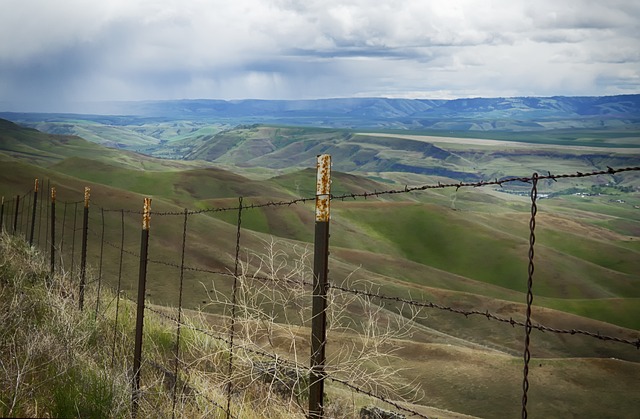
Delta-9-tetrahydrocannabinol acid (THCA) is a naturally occurring compound found in the Cannabis sativa plant, which precedes tetrahydrocannabinol (THC) when heated. THCA is non-psychoactive and has garnered attention for its potential therapeutic properties. Studies suggest that THCA interacts with the body’s endocannabinoid system through cannabinoid receptors, particularly CB1 and CB2, which may influence pain perception, inflammation, and immune responses. One of the intriguing aspects of THCA is its CBD synergy, where it may enhance the beneficial effects of cannabidiol (CBD), another prominent cannabinoid in the cannabis plant. This synergy could potentially offer a wider range of health benefits without the psychoactive effects associated with THC. The anti-inflammatory and neuroprotective properties of THCA are particularly noteworthy, with research indicating its potential in treating conditions like arthritis and neurological disorders. Additionally, THCA’s interaction with the body’s receptors may contribute to its anti-nausea and appetite-stimulating effects, which are also beneficial for individuals undergoing chemotherapy or those with eating disorders. As research continues to evolve, the scientific community is optimistic about the role of THCA flower in holistic health practices, particularly when combined with CBD, offering a promising alternative for managing various conditions.
Exploring the Synergy Between THCA Flower and CBD
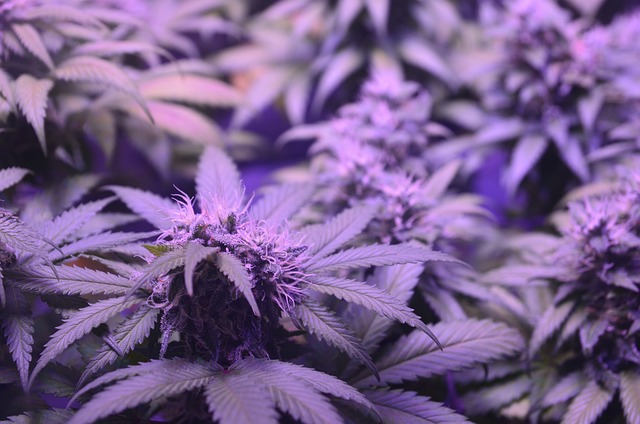
The interplay between THCA flower and CBD is a subject of growing interest within the realm of cannabinoid research. Tetrahydrocannabinolic acid (THCA), the raw, non-psychoactive precursor to delta-9-tetrahydrocannabinol (THC), is found in high concentrations in raw cannabis plants and has been shown to possess anti-inflammatory and neuroprotective properties. When combined with Cannabidiol (CBD), another prominent non-psychoactive cannabinoid, the synergy can amplify their individual therapeutic benefits. This combination is believed to offer a more potent effect than either compound used alone. CBD’s ability to mitigate the psychoactive effects of THC and its own anti-anxiety and pain-relieving properties complement THCA’s analgesic and antiemetic effects, making them a compelling choice for those seeking relief from various conditions without the high associated with THC.
Furthermore, studies suggest that the entourage effect, which describes the enhanced efficacy of cannabinoids when working together, is particularly pronounced with THCA flower and CBD. This synergy may contribute to a more harmonious and balanced effect, potentially leading to improved outcomes for users. The combination is being explored for its potential in managing chronic pain, reducing anxiety, and offering neuroprotective benefits, making it an area of considerable scientific interest and therapeutic promise. As research continues to evolve, understanding the intricate dance between THCA flower and CBD becomes increasingly vital for optimizing their combined effects for various health conditions.
THCA Flower Side Effects: What Users Should Know
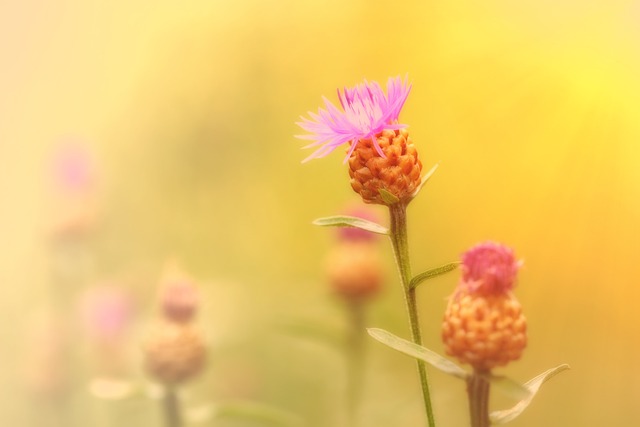
Delta-9-tetrahydrocannabinolic acid (THCA) flower, which contains the non-psychoactive precursor to the well-known psychoactive cannabinoid THC, has been gaining attention for its potential therapeutic properties and its synergy with CBD. Users considering THCA flower should be aware of its side effects, as with any substance, to ensure safe use. While THCA itself is non-psychoactive, it can convert to THC upon heating or decarboxylation, which may lead to psychoactive effects if not properly managed. Common side effects associated with the use of THCA flower include dry mouth and dry eyes, which are typically mild but can be uncomfortable. Users may also experience dizziness or lightheadedness, particularly at higher doses. An important aspect of THCA flower’s use is its interaction with CBD; this synergy can enhance certain effects, potentially magnifying the therapeutic benefits while mitigating some of the adverse reactions associated with THC alone. It is crucial for users to start with a low dose and gradually increase it as needed, allowing their bodies to adjust and minimizing the risk of experiencing unwanted side effects. Additionally, users should be cautious when combining THCA flower with other medications or supplements due to potential interactions, and consulting with a healthcare professional is always recommended before incorporating this into one’s wellness regimen. Understanding the nuances of THCA flower’s side effects and its synergy with CBD can help users approach its use with informed caution and an awareness of how it may affect their individual health and experience.
Dosage Matters: How to Safely Consume THCA Flower
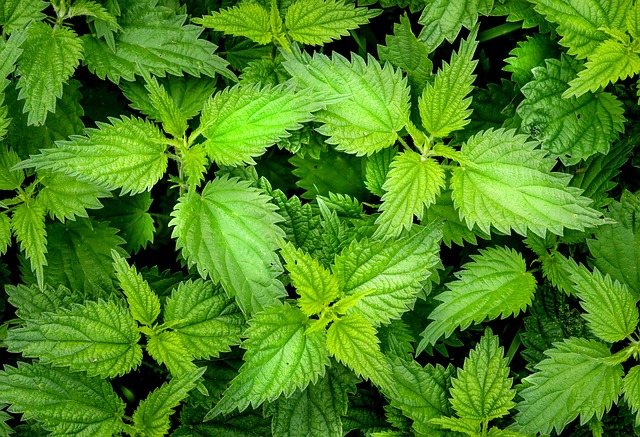
Navigating the effects of THCA (Tetrahydrocannabinolic Acid) flower requires a nuanced approach, particularly when considering dosage for safe consumption. THCA is the precursor to THC (Tetrahydrocannabinol), the psychoactive component of cannabis, and possesses its own distinct properties. Consuming THCA flower can offer therapeutic benefits, including pain relief and anti-inflammatory effects, without the intense psychoactive experience associated with THC. However, dosage is critical; consuming too much can lead to unwanted side effects.
To safely consume THCA flower, it’s important to start with a low dose and gradually increase as needed, allowing your body to acclimate to its effects. The synergy between THCA and CBD (Cannabidiol) can enhance the overall experience by mitigating potential negative effects of THC and providing additional therapeutic benefits. For instance, CBD can counteract anxiety and paranoia sometimes induced by high doses of THC, making it a complementary choice when seeking relief from symptoms without the intoxicating side of cannabinoids. Users should consult with knowledgeable dispensary staff or healthcare professionals to determine the most appropriate dose tailored to their individual needs, and always opt for products sourced from reputable suppliers to ensure purity and safety. Proper dosing not only minimizes risks but also optimizes the benefits one can experience from THCA flower’s CBD synergy.
In conclusion, the exploration of THCA flower’s role in the cannabis plant and its potential benefits, coupled with the science backing its therapeutic properties, has shed light on why it’s gaining popularity alongside CBD for its synergistic effects. However, it is crucial for users to be well-informed about the side effects associated with THCA flower consumption, as outlined in this article. Adhering to appropriate dosage guidelines is key to safely experiencing its benefits without adverse reactions. As with any substance, individual responses can vary, and thorough understanding and responsible use are essential. Users should always consult with healthcare professionals before incorporating THCA flower into their wellness routines, particularly if they have existing health conditions or are taking other medications. The balanced CBD synergy can offer significant advantages when used correctly, making the responsible use of THCA flower a promising avenue for those interested in its potential effects.
